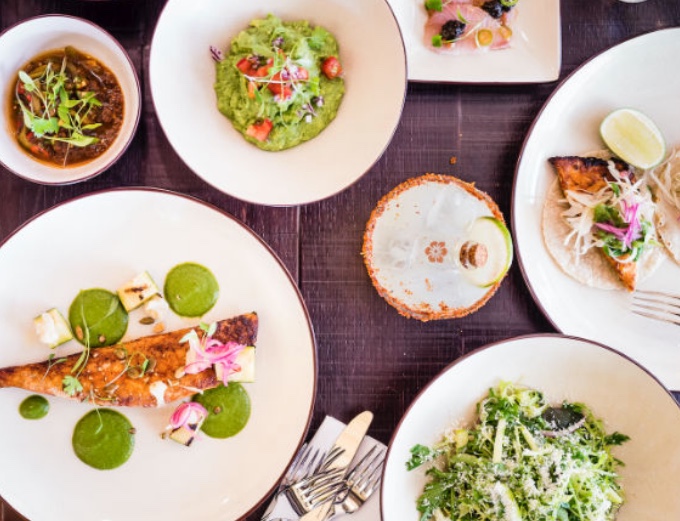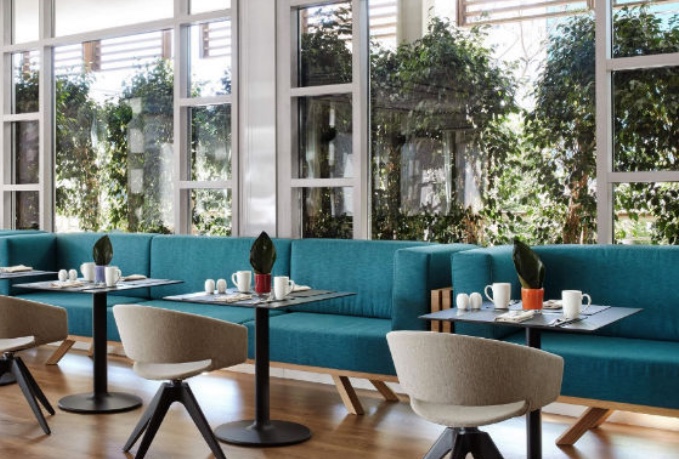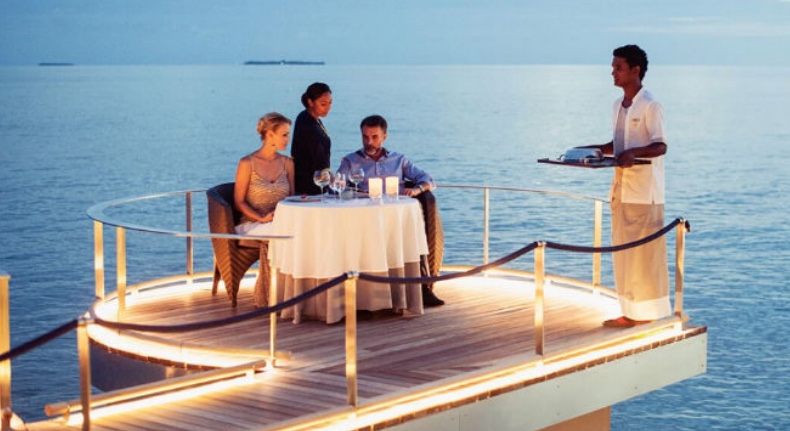Inside the “Foodie Oscars”
Amante Ibiza
By Ben McCormack
On 19 June, the good and the great of gastronomy will assemble in Bilbao for The World’s 50 Best Restaurants awards. Since it was launched by the British trade magazine Restaurant 16 years ago, the annual shindig has established itself as the Oscars of the food world.
Last year’s winner, chef Daniel Humm’s New York restaurant Eleven Madison Park, knocked Massimo Bottura’s Osteria Francescana in Modena, Italy, off the top spot. Previous number ones, from René Redzepi of Noma in Copenhagen to Heston Blumenthal of The Fat Duck in the UK, have been catapulted to stardom thanks to the global exposure granted by the awards.

The 50 Best is a brilliant piece of PR for the restaurant industry. Because the restaurants on the list are drawn from the four corners of the planet, the awards are far more newsworthy on an international level than the publication of a new Michelin guide to one country.
And not only is the 50 Best one of the very few restaurant-focused stories to command front-page headlines, a place on the list guarantees each restaurant a limitless supply of deep-pocketed diners, many of whom will plan their holidays around bagging a table to sample the food of the superstar chefs.
Read some sections of the press, however, and you could be forgiven for thinking that the public has lost its appetite for celebrity chefs. Jamie Oliver has sold his Australian restaurants and has dropped out of The Sunday Times Rich List for the first time in eight years. Gordon Ramsay is shutting his restaurant Maze at London’s Marriott Hotel Grosvenor Square. And in America, Mario Batali and Ken Friedman face highly publicised accusations of sexual harassment.
So, is the era of the celebrity chef about to pass its sell-by date? I don’t think so. Maze may have fallen out of favour with London diners, but Ramsay has just opened an outpost of his Bread Street Kitchen brand at the Atlantis Sanya hotel in China. (It already operates in Singapore, Hong Kong and, of course, Dubai).
The re-opening of René Redzepi’s Noma, meanwhile, saw the Los Angeles Times and the Washington Post fly their restaurant critics to Denmark to review it. And David Chang, who has had New Yorkers eating out of his hand since opening Momofuku Noodle Bar in 2004, has just launched his first West Coast restaurant, Majordomo, in Los Angeles.

But the biggest endorsement of the celebrity chef scene is the announcement last month of The World Restaurant Awards, produced by events firm IMG and billed in the press release as “a ground-breaking new award show for a restaurant-hungry public increasingly obsessed with eating, drinking and travel.”
The awards will debut in February 2019 with a televised ceremony in Paris and, while they are committed to ‘celebrating the diversity of the international restaurant scene’, the 100-strong judging panel includes some very familiar faces, from 50 Best regulars such as Elena Arzak, Massimo Bottura, Daniel Humm and René Redzepi to Michelin favourites including Hélène Darroze and Clare Smyth. When it comes to international judging panels, it seems there’s no such thing as too many cooks.
My problem with these sorts of awards is that I’m not convinced that the winning restaurants have very much appeal beyond making up a bucket list for a certain type of box-ticking, insecure diner in desperate need of bragging rights. I regularly turned up for the 50 Best when it was held in London. (Personal and professional expenses, alas, have not stretched to attending the event since the ceremony went global, touching down in Melbourne and New York before Bilbao, like a kind of culinary Eurovision Song Contest). Sitting in London’s Guildhall year after year, watching picture after picture flash up on the big screen, I found it pretty much impossible to tell one chef’s beautifully presented food from another. It all looked very pretty, but very samey, and none of the artfully arranged splodges, splashes and squiggles resembled anything you might remotely want to eat.
We are all undoubtedly obsessed with eating, drinking and travel—and to its credit, The World Restaurant Awards promises to celebrate restaurants across all price points—but thanks to those much-derided millennials, we are also increasingly obsessed with authenticity.

The hottest London restaurant launch this year hasn’t been three Michelin-starred, Italian-based chef Heinz Beck’s new restaurant at Brown’s Hotel, nor even chef Ollie Dabbous’ three-floor glamorama Hide, occupying a prime piece of Mayfair real estate overlooking Green Park and backed by the owners of Hedonism Wines.
No, the place to eat in London right now is Brat in Shoreditch, where former Young British Foodie Chef of the Year Tomos Parry cooks the house speciality turbot in an iron cage over a wood grill to a fashion clientele led by Parry superfan, designer Henry Holland. A meal at Brat leaves you buzzing with the thrilling certainty that you are in the hottest restaurant in one of the world’s most vibrant cities.
All those awards ceremonies, with their interchangeable cast lists of the same globetrotting chefs, ignore the one thing the dining-out public is most hungry for, and no one can predict: the next big thing.

